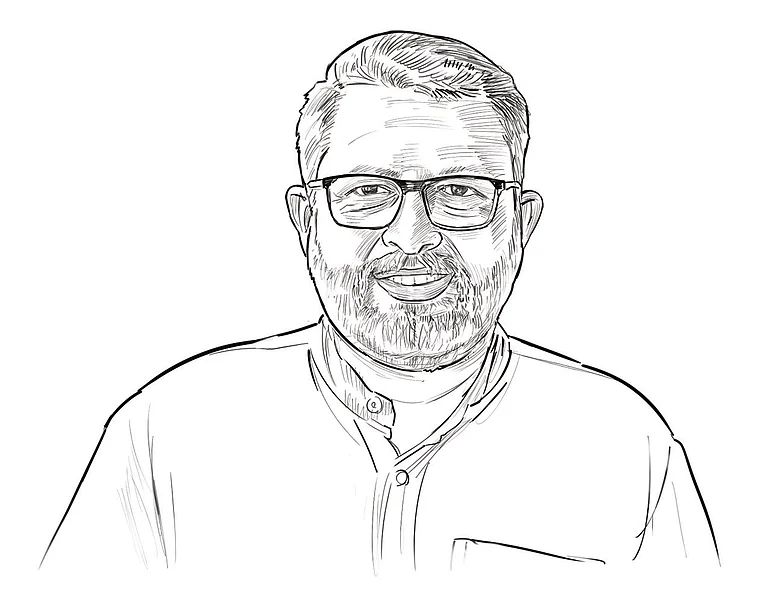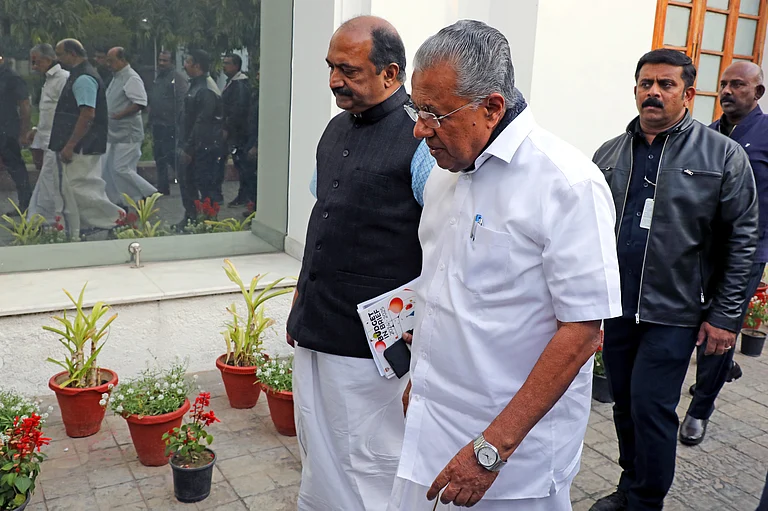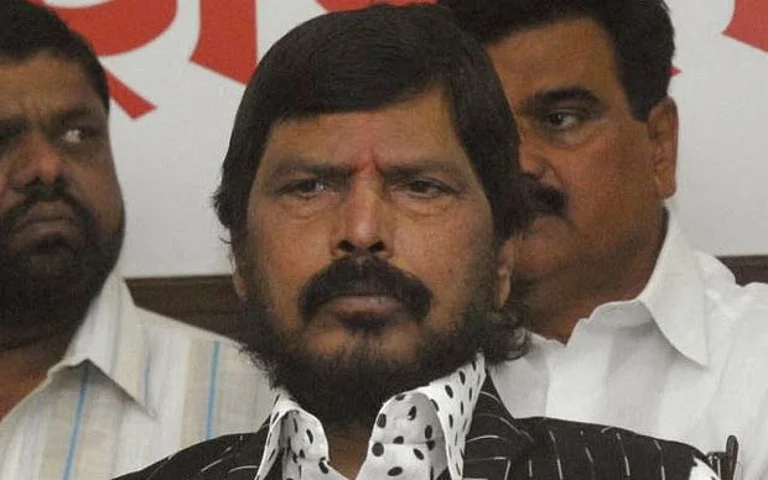Union Government's push for seabed mining under the new Offshore Areas Atomic Minerals Operating Right Rules, 2025, has sparked fears of ecological damage, radiation risks, and the destruction of marine biodiversity.
Critics, including Kerala Industries Minister P. Rajeeve and civil society groups, accuse the Centre of bypassing states, undermining federal principles, and ignoring ecological assessments and public consultations in granting sweeping mining rights to private and foreign players.
Health impacts from radiation, potential contamination of the marine food chain, and the disruption of fish breeding cycles threaten long-term public health and food security.
Once a realm of myth and marine wonder, the deep seas off India's southern coastline are now the stage for a looming ecological and livelihood crisis.
A new wave of seabed mining, backed by the Union Government and involving both private and potentially foreign players, threatens to disrupt fragile marine ecosystems along the shores of Odisha, Andhra Pradesh, Tamil Nadu, and Kerala.
At the heart of the controversy are the Offshore Areas Atomic Minerals Operating Right Rules, 2025, recently notified by the Union Ministry of Mines in consultation with the Department of Atomic Energy.
These rules fall under the Offshore Areas Mineral (Development and Regulation) Act, 2002, which came into effect in 2010 but had so far not led to any offshore mining activity.
Now, the new rules aim to unlock deposits of radioactive minerals like thorium, uranium, monazite, and zircon buried beneath the sea floor—resources deemed vital for India's nuclear and strategic ambitions.
But critics warn the rush for atomic minerals could come at a staggering cost. "It's a unilateral imposition that violates federal principles, endangers national security, and threatens lakhs of coastal livelihoods," said Kerala Industries Minister P. Rajeeve, who has emerged as one of the most vocal opponents of the new rules.
In a strongly worded statement from Thiruvananthapuram, Rajeeve accused the Centre of bypassing states like Kerala—rich in thorium-bearing sands—and granting sweeping powers to mining contractors without consulting local communities or assessing ecological impacts. "This is about much more than minerals—it's about lives and livelihoods," he said.
Another major objection from Rajeev is that the Centre has centralised all control, leaving no role for states to grant licenses or protect coastal interests.
“This is a denial of the state’s constitutional rights,” Rajeev said, adding that mineral-rich beach sands in Kerala, Tamil Nadu, Andhra Pradesh and Odisha should be preserved for local and strategic purposes
Kerala's 590-km coastline is dotted with fishing villages and mineral processing hubs like the Indian Rare Earths Ltd (IREL) unit in Chavara, Kollam, where residents already fear radiation-linked illnesses. Expanding mining operations into the sea, Rajeeve warned, would decimate fish stocks, hasten coastal erosion, and destroy marine biodiversity that supports thousands of fishing families.
The concerns extend beyond Kerala. In Tamil Nadu's Kanyakumari district, fisherfolk in Killiyoor and Kalkulam taluks are resisting the reactivation of mining projects across 1,144 hectares, involving monazite and zircon extraction by IREL. Villages such as Keezhmidalam, Midalam, Enayamputhenthurai, and Kollencode have already witnessed mounting cancer rates, and residents fear things will only worsen.
"We are not radioactive waste bins," read placards during a silent protest in Chinnathurai last September. A massive human chain stretched from Thoothoor to Poorthurai, and community leaders have vowed to oppose the October 1 public hearing on new mining proposals.
According to local reports, Father A. Dunston, director of the Coastal Peace and Development Organisation in Kanyakumari, warned, "Mining these radioactive sands will increase our suffering, not reduce it."
Veteran activist S.P. Udayakumar, who led the anti-Kudankulam nuclear protests, dismissed IREL's claim that mining lowers radiation. "That's scientifically false and morally bankrupt," he said. "The moment you disturb monazite-rich sand, radiation exposure spikes. People are already sick. The Centre's assurances seem insincere.
The ecological warnings are becoming increasingly urgent. Coastal researcher Joseph Vijayan cited mounting evidence that seabed dredging disrupts benthic life, alters fish spawning grounds, and destroys coral reefs by increasing turbidity and reducing oxygen levels. Areas like the Gulf of Mannar and the Wadge Bank—among India's richest fishing grounds—are at direct risk.
A University of Kerala study has warned that seabed mining near Kollam could disrupt fish reproduction cycles and permanently alter sediment flows that act as a buffer against seawater intrusion in the rice-farming Kuttanad region. These sediment flows are already fragile due to rising sea levels and increased cyclonic activity in the Arabian Sea, as noted by the Indian Institute of Tropical Meteorology.
Adding mining to the mix could be catastrophic. "You're effectively killing the fish before they can breed," Udayakumar warned. Heavy metals and radioactive particles released during dredging also risk entering the marine food chain, posing long-term public health threats.
Adding another layer of complexity is the Sahoo Committee report, submitted by a court-appointed panel led by former Atomic Energy Commission member A.G. Sahoo. The now public report revealed that monazite exceeded permissible limits in 53 per cent of beach mineral samples destined for export, thereby raising concerns about national security.
"There is little clarity on how much of these potentially weaponisable minerals have left Indian shores in the past two decades," the report noted, referring to monazite's capacity for enrichment into uranium-233, a nuclear weapon material.
The revelations prompted Congress leader Rahul Gandhi to write to Prime Minister Narendra Modi last year, demanding the cancellation of mining tenders and warning that "this is not just about minerals—it's about the irreversible destruction of marine ecosystems." Gandhi criticised the process for a lack of stakeholder consultations and weak environmental scrutiny.
While the Centre argues that seabed mining will reduce reliance on imported rare earths and boost India's strategic autonomy, coastal states and civil society see a familiar pattern: development at any cost.
"If this is the future of the Blue Economy, it's deeply ironic that it begins by destroying the ocean," said a senior marine biologist from the National Centre for Coastal Research (NCCR).
Greenpeace International has echoed these concerns, demanding a global moratorium on seabed mining. "With less than 1 per cent of the high seas under protection, deep-sea mining is the newest and most dangerous threat to life on Earth," the group said in a recent statement.
Kerala Fisheries Minister Saji Cherian warned that handing over marine dredging rights to private—especially foreign—companies would "push poor fishermen into permanent unemployment." Already burdened by rising sea levels and extreme weather events, coastal communities now face what many see as an existential threat.
For coastal India, the message is becoming clear. There should be no mining without complete environmental assessments, transparent public consultations, and the consent of local communities.
As Joseph Vijayan put it, "This is not just about extraction. It's about rights, resilience, and survival. And the ocean, once again, is the battleground."



























